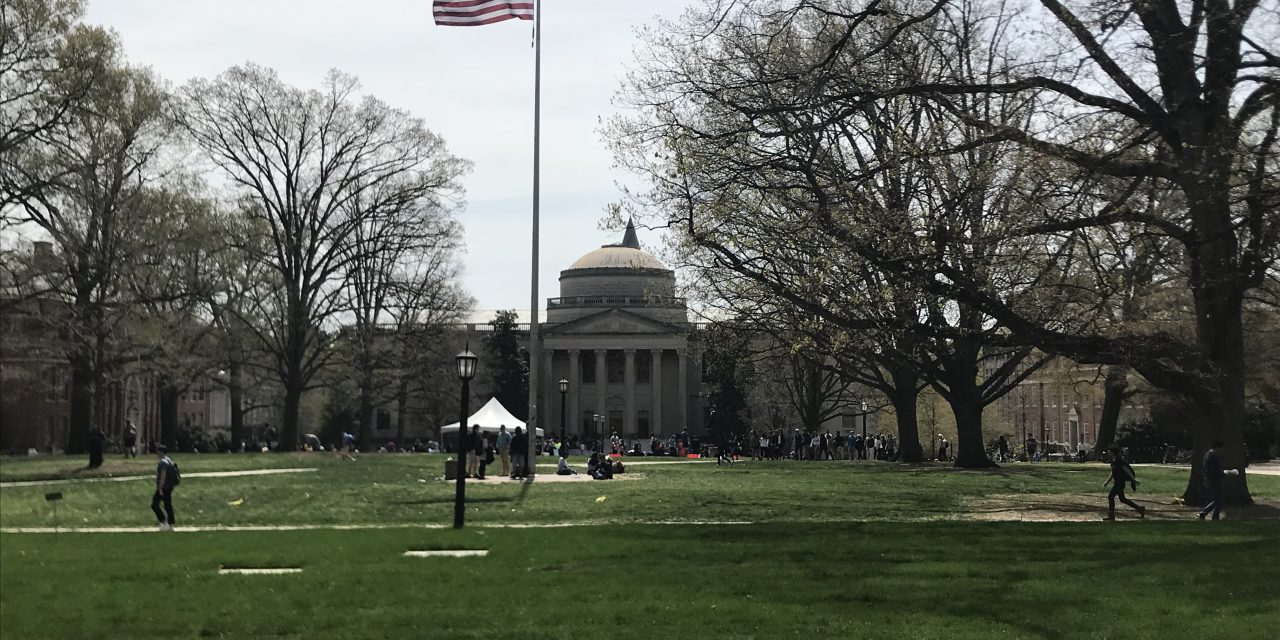A new study out of UNC shows that the number of hospitalizations and surgeries to treat drug-related infective endocarditis have skyrocketed over the past decade.
Endocarditis is an infection of the heart valves that generally affects those over the age of 50, but it can also be caused by opioid use. Advanced cases can require open-heart surgery and heart valve replacement.
Author of the recent study and fellow in the UNC Division of Infectious Diseases Asher Schranz calls endocarditis a complicated and severe infection.
“The typical national length of stay for hospitalization in the country is about four to five days,” says Schranz. “For people with drug related endocarditis, the median length of stay is 11 days. For people who require heart valve surgery to treat their endocarditis, the median length of stay is about four weeks.”
Treatment and hospital stay for endocarditis can cause patients to accumulate over $250,000 in charges, Schranz says, which is especially overwhelming for a patient base that can often be uninsured.
“This is posing a large burden to healthcare systems in the state, and that means both individual hospitals as well as state insurance payers, primarily Medicaid,” says Schranz.
According to the study, 73 percent of patients with drug-associated infective endocarditis are uninsured or on Medicaid, which means the cost of treatment and hospitalization are absorbed by hospitals and government budgets.
Schranz believes the best way to deal with the problem is to treat the root of the issue: addiction.
“There are hurdles to addressing the underlying addiction,” says Schranz. “This is due to numerous reasons, including the fact that a lot of these patients do not have insurance, many may come from remote or rural areas where there may not be providers that treat addiction nearby them, and a number of other factors.”
More than 280 drug-associated endocarditis valve replacement surgeries have been performed in North Carolina in the past decade.
Related Stories
‹

'I Could Not Be Happier': UNC's Nabarun Dasgupta Wins 'Genius' Grant for Lifesaving Work in Opioid FightUNC researcher Nabarun Dasgupta discusses winning a MacArthur "genius" grant - and the lifesaving research that earned it.
![]()
On Air Today: Nabarun Dasgupta of UNC's Opioid Data Lab on Addressing National Overdose DeathsUNC epidemiologist and senior scientist Nabarun Dasgupta joins 97.9 The Hill's Brighton McConnell on Friday, May 16.

Orange County Sheriff, UNC Distinguished Professor Both Recipients of Dogwood AwardsTwo Orange County community members earned a distinguished honor from the North Carolina Attorney General on Wednesday. Orange County Sheriff Charles Blackwood and W.R. Kenan Jr. Distinguished Professor for the UNC School of Government Jessie Smith are both recipients of Dogwood Awards, as announced by Attorney General Josh Stein’s office. Given each year to honor North Carolinians […]

Chansky's Notebook: Complete GameUNC might have avoided another halftime tongue-lashing from Hubert Davis by holding ETSU scoreless over the last minute of the first half.

College Football's Transfer Portal Opens Jan. 2. Which Tar Heels Are Planning to Enter?The college football transfer portal will open Friday, Jan. 2 and close at 11:59 p.m. on Friday, Jan. 16. It will be the only transfer portal window of the year for college football, as the NCAA moved to eliminate the spring transfer window earlier this year. Players do not have to have committed to and […]

2nd-Half Eruption Leads UNC Men's Basketball Past East Tennessee StateUNC outscored East Tennessee State 28-9 in the first 12:36 of the second half to break open a close game and cruised from there to a 77-58 win. HEELS WIN.#CarolinaFamily | @WellsFargo pic.twitter.com/P84NtzNT93 — Carolina Basketball (@UNC_Basketball) December 17, 2025 The 28-9 run stretched to 33-9 when accounting for UNC scoring five straight points to […]

UNC Men's Basketball to Face Georgia in Home-and-Home Series Beginning in 2026The UNC men’s basketball program has scheduled a home-and-home series with Georgia, which will be contested in 2026 and 2028. The Tar Heels will host the Bulldogs Friday, Nov. 13, 2026 at the Smith Center before making the return trip to Athens in 2028. The second game’s date has not yet been determined, but will […]

Hubert Davis: Seth Trimble 'Progressing Nicely,' Practicing with UNCUNC head coach Hubert Davis gave an update on injured star Seth Trimble during Davis’ weekly radio show Monday night. “He’s progressing nicely,” Davis told the Tar Heel Sports Network’s Jones Angell. “The last couple days, he’s been [playing] five-on-five and been practicing with us. So he’s progressing, and I like the way that he […]

Chansky's Notebook: Coaching CutsBill Belichick has fired two of his assistant coaches, but it's unclear where UNC will go for its upcoming hires.
![]()
On Air Today: 'Naloxone Near Me,' with Delesha CarpenterAaron welcomes UNC's Delesha Carpenter to discuss "Naloxone Near Me," a new statewide initiative that could save lives.
›










